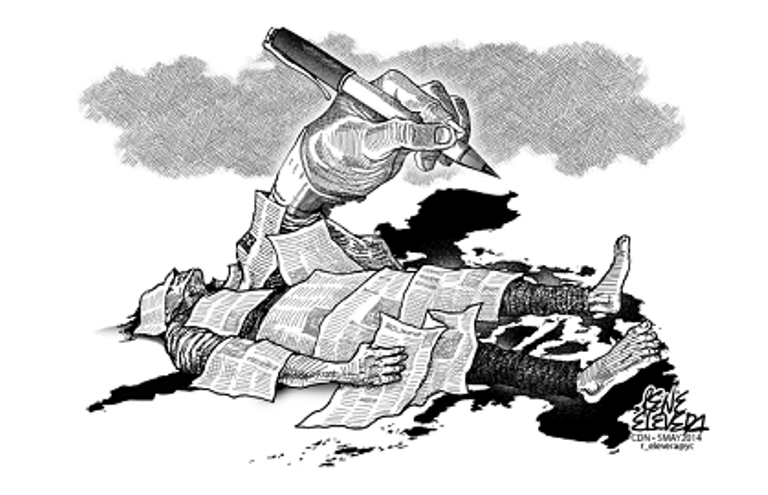Communications Secretary Herminio Coloma Jr. said Saturday that the high body count of journalists in the 2009 Maguindanao massacre is the reason the Philippines remains in the list of the world’s most dangerous places for journalists.
The New York-based Committee to Protect Journalists, however, cited the Philippines not only because of the horrific number of journalist killings— more than 50 from 2004 to 2013—but also because of the country’s inability to prosecute and jail the perpetrators.
Coloma’s remarks on the eve of the May 3 celebration of Global Press Freedom Day only highlighted the sobering fact that the Maguindanao massacre trial is dragging into its fourth year.
For this, the courts are not solely to blame. How was it that three protected witnesses to murders in Ampatuan town were killed? It seems the Department of Justice (DOJ) did not do enough to protect them.
The Lower House apparently spotted loopholes in the Witness Protection Program and is deliberating amendments to strengthen our Witness Protection laws. Will the Senate make counterpart moves?
How come three relatives of the victims were killed, too? It seems the police did not factor in the dangers that the victims’ kin faced.
Malacañang must stop courting comparisons with Pontius Pilate by saying that the problems on its lap were inherited from a previous dispensation.
President Benigno Aquino III’s success in this area is measured not only in stopping the murder of journalists, a task he is obviously having a hard time achieving, with the deaths of 24 more journalists added under his watch.
He must measure achievement more importantly in the number of cases that are brought to closure with the incarceration of culprits, which alone would put the fear of the law into the hearts of would-be murderers.
How we long for the day when every Filipino community, like Cebu, would have a functioning press council where media practitioners and private and public personalities mull over in wisdom and in peace issues of freedom and responsibility.
How we long for the day when every public official can view every member of the media, in the words of former president Fidel Ramos on the 50th anniversary of the Philippine Press Institute, as the conscience of the nation.
Sadly, that stays beyond reach in many places where killing scribes with impunity is fashionable, because the powerful and crooked see reporting not as an invitation to good governance but as a bane to their selfishness and power lust.
Disclaimer: The comments uploaded on this site do not necessarily represent or reflect the views of management and owner of Cebudailynews. We reserve the right to exclude comments that we deem to be inconsistent with our editorial standards.

